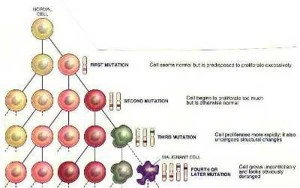How You Can Prevent Cancer With Diet and Lifestyle Change
We hear again and again how we must eat a balanced diet and exercise. Yet, many of us put these things on hold or we initiate change in baby steps. The truth is, health is pretty easy... You eat a generally decent diet with whole foods (see the “eat like a human diet”), you walk around as much as possible, and everything beyond that is just a bonus for your health. The problem is, we have too much food and distractions available to us, we generally are far too busy, and it is, quite literally, killing us. Nearly all of the conditions that have high mortality rates in developed countries have very strong relationships to lifestyle and diet – the good news is that what is killing us is largely preventable.
The World Cancer Research Fund (WCRF) and its sister organization the American Institute for Cancer Research (AICR) recently published an extremely comprehensive 583 page report on the causes, rates, and factors involved with cancer worldwide. Too lengthy and technical for many of us to read all the way through, but the short of it is, that with basic dietary changes and simple exercises like walking we can cut cancer by a third with some cancers being cut by over 60% with relatively basic lifestyle changes.
 As there is little that can be done regarding family history and other factors such as our environment, our strongest move to lowering our risk for cancer and other diseases is lifestyle change. The report provides some basic recommendations that are shown to greatly lower our risk:
As there is little that can be done regarding family history and other factors such as our environment, our strongest move to lowering our risk for cancer and other diseases is lifestyle change. The report provides some basic recommendations that are shown to greatly lower our risk:
- Body Fat – Be as lean as possible within the normal range of body weight. This means your BMI (body mass index) should be between 21 and 23. See our BMI chart.
- Physical Activity – Be physically active as part of everyday life. This doesn't mean you need a gym membership, it just means to walk more often and incorporate physical activity into your life as much as possible
- Food and Drink:
+ Limit consumption of energy-dense foods (see my diabetes/lifestyle article as well)
+ Avoid surgary drinks
+ Eat mostly foods of plant origin (focus on unprocessed foods as much as possible)
+ Limit intake of read meat (less than 18oz/week) and avoid processed meat.
+ Limit alcoholic drinks (if consumed limit to 1/day for women, 2/day for men).
+ Limit consumption of salt (i.e. eat whole unprocessed, unpreserved foods)
+ Avoid mouldy grains and bean - Aim to meet nutritional needs through diet alone. This means to not use dietary supplements (see Vitamins, More Harm Than Good). Our view and that of many researchers is that they are more likely to be harmful than helpful (even the amounts in a daily multi-vitamin) and at best they are a waste of money. They are certainly not a substitute for eating well
- Breastfeed. The recommendation is to breastfeed each child exclusively for six months. This offers health benefits and protections for both the mother and child.
As you can see there isn't much in the list that is debatable or too difficult to incorporate into our lives. Start by making small steps in each of the above areas and you will find that your tastes and sensitivity to poor choices will change over time. Gradually your body and mind will desire and prefer healthier options rather than their sugary, salty, fatty counterparts. These changes do not happen overnight, but they do happen with a small amount of work and awareness. We should be grateful that we have the choice on how to live and easy ways to eliminate many of our problems.
To View The Full Cancer Report (Go Here).
tag @yinyanghouse for questions/comments